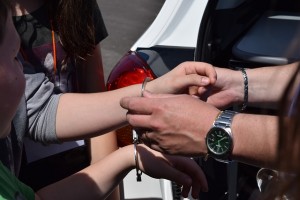DWI-DUI Charges in New Jersey
 In New Jersey, if you are convicted or plead guilty to a DWI / DUI or Refusal to Submit a Breath Sample, most likely you will have to install an ignition interlock device in your car. The device essentially works as a bypass to the ignition of your vehicle which requires a breath sample to be supplied before the vehicle will start. It will also require periodic samples as the vehicle is operated for longer time frames to keep it running so as to ensure the operator is not consuming alcohol after the initial start up.
In New Jersey, if you are convicted or plead guilty to a DWI / DUI or Refusal to Submit a Breath Sample, most likely you will have to install an ignition interlock device in your car. The device essentially works as a bypass to the ignition of your vehicle which requires a breath sample to be supplied before the vehicle will start. It will also require periodic samples as the vehicle is operated for longer time frames to keep it running so as to ensure the operator is not consuming alcohol after the initial start up.
As a first offender with less than a .15% BAC (blood alcohol concentration), the sentencing judge is not mandated to have you install it, although he or she may depending on surrounding circumstances of your incident. Once your BAC reaches .15%, the judge is mandated to order the installation of the device into the vehicle principally operated. The device must be installed all through the period of suspension and an additional six months to one year (judge discretion) after you get your license back.
A first offender who refused to submit a breath sample will be required to install an ignition interlock device as well, with the rationale that the breath sample would have been a .15% BAC or higher. Another reason to provide a breath sample – but most people learn of this incentive after the fact.
As a second offender, it does not matter what your blood alcohol concentration was as long as it was a minimum of .08% BAC. The license suspension for a second offender is 2 years, and the device must be installed in the vehicle principally operated during the entire period of license suspension and an additional one to three years (judge discretion) after you get your license restored.
As a third offender, it does not matter what your blood alcohol concentration was as long as it was a minimum of .08% BAC. The license suspension for a third offender is ten years, and the device must be installed in the vehicle principally operated during the entire period of license suspension and an additional one to three years (judge discretion) after you get your license restored.
A common question is, why do I have to put this device in my car during the period of suspension if I cannot drive anyway. That answer is not clear. Other states have interlock laws and penalties for DWI, and it appears New Jersey copied the laws from other states. The discrepancy is that other states allow you to drive during the period of suspension for very limited reasons.
Other states will grant a very limited purpose license to travel to work or school, and most require you to install an ignition interlock device in your vehicle prior to being granted that class. New Jersey does not offer a temporary, hardship or work only license, as many other states do.
Contact DUI – DWI Defense Attorney Edward M. Janzekovich
To schedule a free initial consultation, contact my office online or call us at 732-257-1137. Evening and weekend consultations are available by appointment. I accept all major credit cards.


